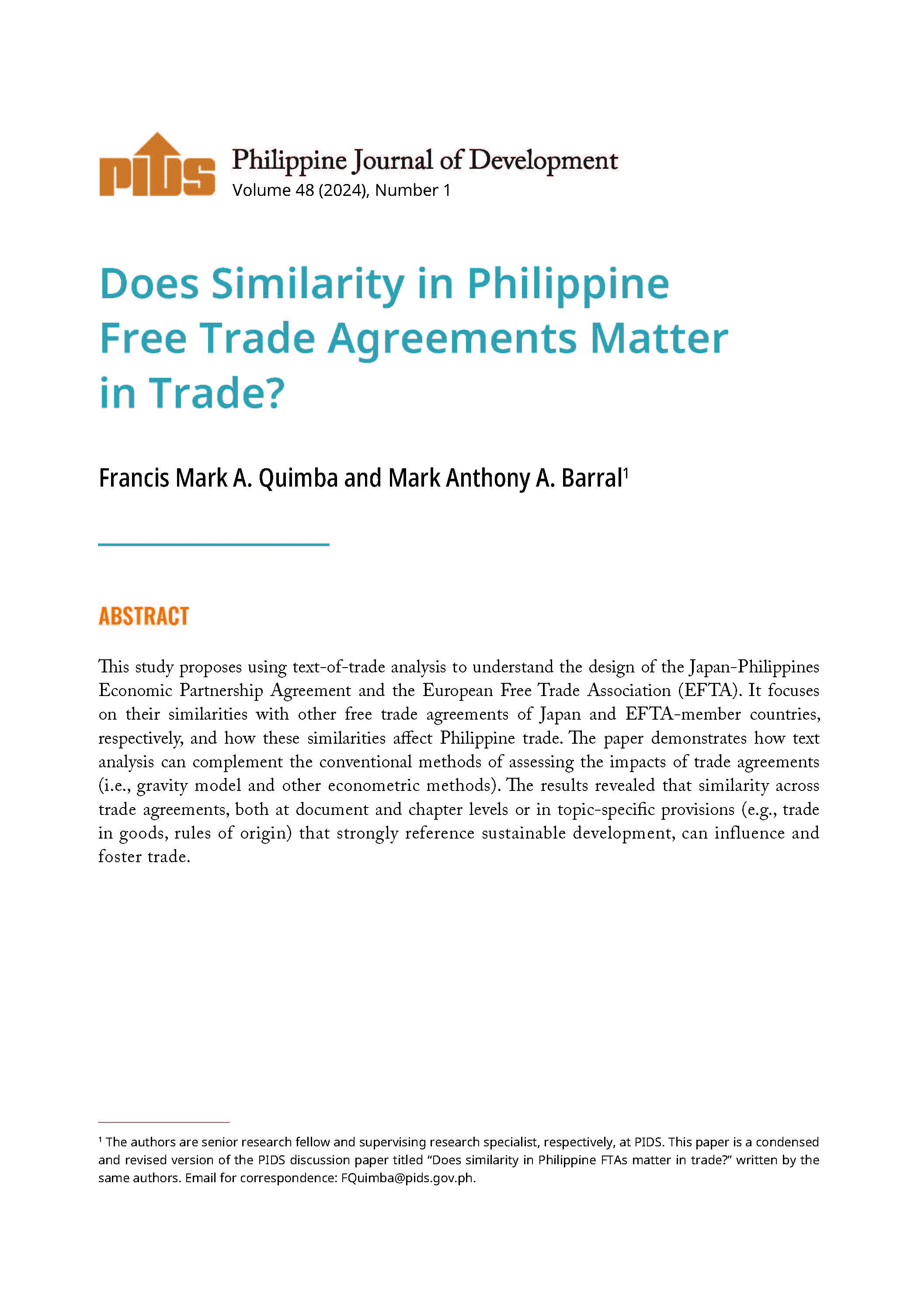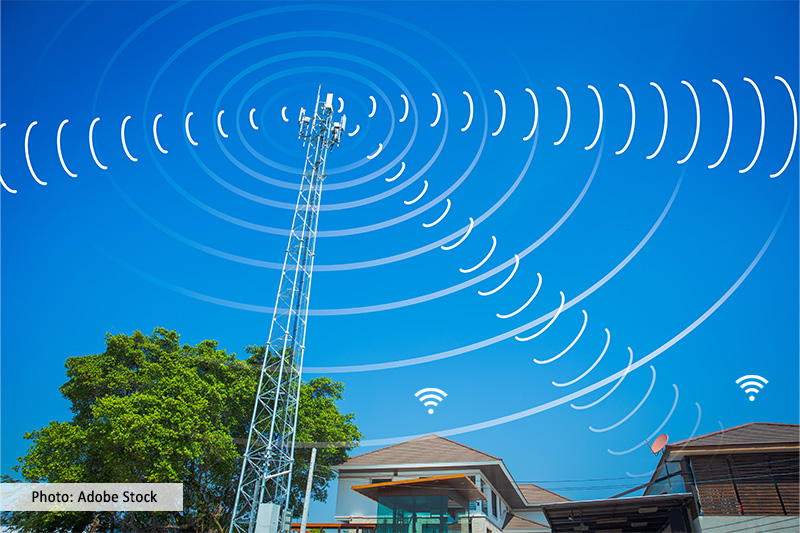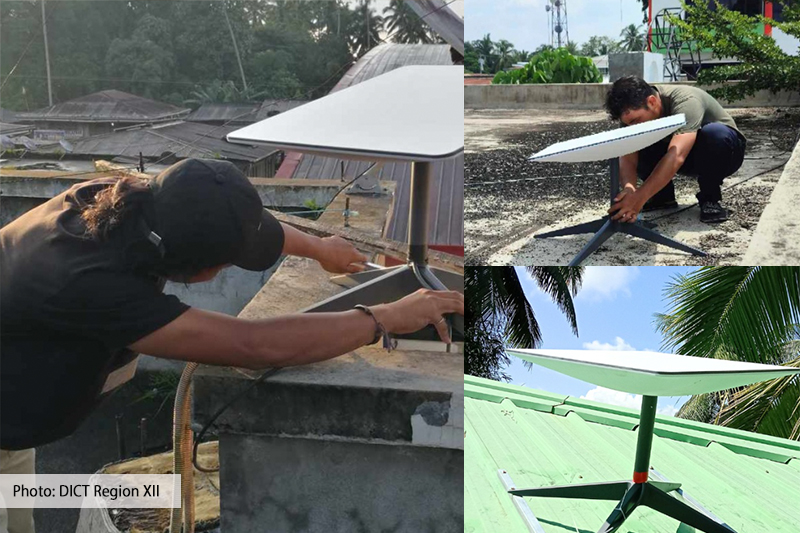The Organization for Economic Co-operation and Development (OECD) defines digital trade as the "digitally-enabled transactions of trade in goods and services that can either be digitally or physically delivered, and that involve consumers, firms and governments."
According to OECD, while all forms of digital trade are enabled by digital technologies, not all digital trade is digitally delivered.
"For instance, digital trade also involves digitally enabled but physically delivered trade in goods and services such as the purchase of a book through an online marketplace, or booking a stay in an apartment through a matching application," it said.
"Underpinning digital trade is the movement of data. Data is not only a means of production, it is also an asset that can itself be traded, and a means through which GVCs (global value chains) are organized and services delivered," OECD added.
In Southeast Asia, Singapore leads in forging digital trade treaties. The country has a Digital Economy Partnership Agreement with Chile and New Zealand and also has an agreement with Australia. Singapore is also currently negotiating to have a digital economy agreement with the United Kingdom, Vietnam, and South Korea.
In the Philippines, the Department of Trade and Industry (DTI) said it is looking into having a digital trade agreement with the country's key partners.
"Digital Trade agreement is one area of interest that the Philippines is looking at either at a bilateral platform or plurilateral platform. New FTAs (free trade agreements) elements of digital trade are also being incorporated such as in e-commerce chapters," said Trade Secretary Ramon Lopez.
"For Philippines, noting our niche in services sector particularly in IT-BPM (information technology-business process management) and other business services like software development, graphics and animation services, and the fact that we want to position Philippines as a hub for hyperscale data center in the region, a digital trade agreement with key partners would be a strategic approach," Lopez added.
Lopez said that at present, the Philippines has embraced rules and disciplines on e-commerce in the Regional Comprehensive Economic Partnership (RCEP) agreement and Asean Agreement on E-Commerce.
RCEP is a mega free-trade agreement between the 10-member Association of Southeast Asian Nations (Asean), China, Japan, Australia, New Zealand, and South Korea.
RCEP covers emerging areas in trade such as intellectual property, electronic commerce, government procurement, and competition.
The Asean Agreement on E-commerce signed in 2018, meanwhile, provides a set of policies, principles and rules to govern cross-border e-commerce.
It aims to provide a holistic approach on the development and promotion of e-commerce in the region, nurture an enabling e-commerce environment, and promote public interest.
The agreement is expected to benefit Philippine businesses — especially, micro, small and medium enterprises (MSMEs) — as well as Filipino consumers.
"E-commerce enables MSMEs to have wider and greater market reach at practically no additional, or very minimal, overhead cost. It also allows consumers to have access to a wealth of products and services in the world," said Lopez.
Lopez said the Philippines also joined the Joint Statement Initiative (JSI) on E-commerce at the World Trade Organization.
The JSI aims to develop a multilateral agreement on trade-related aspects of e-commerce.
"These policy directions and initiatives strengthen our policy towards a stronger and conducive digital trade regime," said Lopez.
Digital trade to benefit the PH
An economist from Rizal Commercial Banking Corp. (RCBC) said that digital trade agreements would help complement the country's free trade agreements (FTAs) and ensure greater productivity gains in the economy in the coming years.
"These would also ensure harmonization and adoption of internationally accepted standards on digital trade, while also preventing digital protectionism that unduly favor local industry players, applying the principles of reciprocity, fairness, and level the playing field for international digital trade that opens immense market opportunities especially for smaller enterprises to access bigger markets worldwide," said RCBC chief economist Michael Ricafort.
Ricafort said that with the increasing share of digital trade and other online businesses in the country, digital trade agreements have become more imperative in a more globalized economy that would help ensure sustainable economic growth and development.
He said digital trade agreements will help the Philippines adapt to the increasingly digitalized world of conducting business and other transactions that lead to significant productivity and efficiency.
A study released by the Philippine Institute of Development Studies (PIDS) said the Philippines is in " a good position to pursue regional digital trade integration."
The reported titled "How Ready Are we? Measuring the Philippines' Readiness for Digital Trade Integration with the Asia-Pacific" written by Francis Mark Quimba, Slylyn Calizo Jr., Jean Clarisse Carlos, and Jose Ramon Albert assessed the Philippines' readiness for regional digital trade integration with the Asia-Pacific by using the Regional Digital Trade Integration Index (RDTII) framework to provide an analytical overview of the Philippines' digital trade policy and regulatory environment.
Using the RDTII framework, the Philippines reported an overall RDTII score of 0.342 in 2020, which rates the country as having a slightly restrictive digital trade environment.
The authors said in the same year, the Philippines performed best in three pillars: pillar 1 (tariffs and trade defense measures), pillar 6 (cross-border data policies), and pillar 8 (intermediary liability and content access). In the three pillars, the country scored less than 0.200, indicating a nonrestrictive policy and regulatory environment.
In contrast, the Philippines performed worst in three pillars: pillar 2 (public procurement), pillar 3 (foreign direct investment), and pillar 5 (telecommunications infrastructure and competition).
The authors said that in those three pillars, the Philippines got a score of above 0.610, characterized by having a strongly restrictive policy and regulatory environment.
Meanwhile, the Philippines was found to be slightly restrictive in intellectual property rights (pillar 4), domestic policies on the use of data (pillar 7), quantitative trade restrictions (pillar 9), standards (pillar 10), and online sales and transactions (pillar 11), with scores ranging from 0.210 to 0.400.
"This study finds that the Philippines generally has an open policy environment for digital trade, which suggests that it is ready for digital trade integration with the region," the authors said.
"However, the proper implementation of some of these policies has not been fully achieved, and this could be a great obstacle or challenge to regional integration," they added.
To fully pursue integration, some of the recommendations include amending the constitutional restrictions to foreign participation in key digital industries; enhancing consumer participation by addressing issues on cyber security; enabling the digital delivery of government services; intensifying programs to address the digital infrastructure gap; promoting stringer cooperation on intellectual property among economies in the Asia-Pacific; and exploring the adoption of cross-border telebanking, to other sectors.
Digital transactions to benefit Philippine economy











